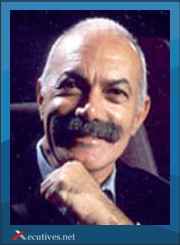
Emanuel Levy
Emanuel Levy is a distinguished US film critic, scholar and author of eight books on cinema, including two separate books on the Oscars. Emanuel Levy received his Ph.D. from Columbia University, where he also taught, as well as chairing the film department at another Ivy League school, Wellesley College. He currently teaches at UCLA film school. He has served on the juries of 45 international film festivals and is one of the persons who awards the Golden Globes, which besides the Oscar is one of the most important awards in the movie business. His up-to-date reviews of upcoming and ongoing attractions in theatres and festivals worldwide can be found at the prestigious Hollywood cinema blog site, http://www.emanuellevy.com.
Dueblin: Mr. Levy, you are of course internationally well known as one of the foremost authorities on Hollywood in the world, and have written two books on the Oscar and what the statuette represents. I would like to know how you consider the value attached to the Oscar has changed in the twenty years between your two books.
Emanuel Levy: Well, I think the Oscar has become more global as a result of the attention paid to the structure of the film industry, and as a result of the Internet. You can see that there is a trend towards more nominees who are foreign this year. Foreign nominees are either in foreign language movies or in American movies. One very good example is Penelope Cruz, who is an international star. She was nominated for the Oscar for the Spanish Almodovar movie „Volver“, and this year for the Woody Allen Comedy „Vicky Cristina Barcelona“. She is a front-runner, and may win an Oscar this year.
Because of the Internet, the Oscar has also become more immediate. There was always international interest in the Oscar nomination. But now, the “red carpet” before the show has become almost as popular as the show itself. That is a new phenomenon. Millions of people around the world are watching the celebs crossing the red carpet. Earlier, this took about half an hour. Today, it takes two hours. You can read in studies that there are more people interested in the celebrities than in the movies they are in. The American society has become obsessed with celebrities. There was always a big interest in stars, but this tendency is becoming more and more pronounced, and has had an effect on the Oscar nominations and on the quality of the films nominated.
Dueblin: You said in an interview that most of Oscar pictures have little to offer by way of film art. You also said that of the seventy six winners, only a dozen or so were truly good. It is certainly amazing that movies like Billy Wilder’s „Some Like it Hot“, the musical „Singing in the Rain“ and several Hitchcock movies, such as „North by Northwest“, „Psycho“ or „Rear Window“ have not even been considered for a nomination. How can one explain that trend to not fully reward the artistic quality of a film?
Emanuel Levy: There are two kinds of politics when it comes to the Oscars. On the one hand there is the politics of the film industry mainly within the film industry, and on the other hand the political aspects and our society. You are right that this trend started many years ago, as you pointed out. There are plenty of nominations, but only one winner within a sector. We are talking about 460 to 470 movies that have been nominated since the Oscar first existed. What you see is that there are more good movies than great movies. What has become more important is the message of the movie, and not the quality. That is an interesting social and political phenomenon.
Comedy and musicals have always been underestimated by the academy. Only a few comedies and comedians have ever been nominated. A good example is Charlie Chaplin, who never won an Oscar. He was a great director and a great producer and would have merited one, without any doubt. Another example is Cary Grant. He also never won an Oscar, but made great movies. He was nominated for two melodramas that are not typical for his work and are not very good.
Dueblin: There were some movies that have been made in Europe recently, for instance: „Bienvenue chez les Ch’tis“ or „Amelie“, both French productions that only cost a few million Euros, which is nothing compared with the cost of US productions in Hollywood, that are a hundred times more expensive but not necessarily better films. What is Hollywood’s reaction to the flood of new independent films by creative film makers?
Emanuel Levy: French movies, for instance, are not very successful in the US. It is an altogether different sense of humour than we have in the US. But if somebody does a remake in the US, it changes. There are lots of remakes made in Hollywood that have their basis in French movies and ideas. Some of the original humour apparently does not really translate well. The humour is very connected with the language and there are political, social and geographical boundaries. What is not spoken in English is also a problem for US audiences. On the other hand you have movies like „Knocked up“ or „Forty Year old Virgin“ by Chat Apato, the director, or „Wedding Crashers“. Those movies and comedies with broad American humour are not very popular in Europe, but are very popular in the US. American comedies do not do as well in Europe as action movies. „Amelie“ was a big success in France and in Europe and also here. The movie was nominated for a foreign language Oscar but it did not win. The producers were very disappointed. The movie that won was “No Man’s Land”. When it comes to foreign language Oscars, the politics are even worse than the politics for other categories.
Dueblin: Cheap and good movies seem to be a kind of threat, but also a challenge for Hollywood. When I talked with the Swiss director Fredi M. Murer about his film “Vitus”, he told me that he was not allowed by the distributor to talk about money in public. The reason for that prohibition was the fact that he said that his movie had cost several million francs, I think it was 6 million francs. Somebody in the audience apparently asked him if that was the salary of the main actor. What is the problem regarding the money?
Emanuel Levy: (Laughs) I saw “Vitus”. This is a nice movie. I liked it. But the fact of it being in a foreign language is a problem. When I was a student at the film school of Colombia 25 years ago, we were watching Fellini or Bergman every week. The audience has changed very much since then. Those movies only interest some specialists who really like films. If a director wants to be successful, he must make a film in English in Hollywood.
But to go back to your question about the budget — there are movies with low budgets in Hollywood that made a lot of money. Small movies and independent movies like „Little Miss Sunshine“ that was produced some years ago and was very popular and successful. I was in Sundance at the premiere. Another successful movie with a small budget was „Juno“. It is a very nice movie about teenage pregnancies. That is a good example. The budget was only 7 million dollars. It is about high school kids. It made about 140 million dollars. This movie was unexpectedly nominated last year for the Oscar. We call such movies „sleepers“. It has become like a business model in Hollywood. Everybody is looking for the next „Little Miss Sunshine“ or the next „Juno“.
I understand why the Swiss director was not allowed to speak about money. It has a perceptual effect. On the one hand nobody likes little movies with little budgets and suddenly rumours go around, the budget is too small, which has a negative effect, if it is disclosed at an early stage. People like little movies that become unexpectedly big, as „Little Miss Sunshine“. On the other hand we still do not know what the budget of „Titanic“ was. We do not know and can only estimate. It is said, that it cost 200 million dollars, which is quite a lot of money. Eleven years ago this is like 250 million dollars today. It was definitely the most popular movie in history.
It is a mistake to talk too early about the budget. Whatever a studio says, you should at least increase the figure by twenty percent. That is how it works (laughs). Like in Sundance, if the movie has not been launched yet, new directors instruct their sales people not to talk about figures. This would have an effect on perception and it could become a stigma for a movie. Everybody is looking for little movies that get successful. Take Pulp Fiction — It only cost 8 million dollars and was a huge success.
Dueblin: The financial crisis will also influence the movie business. There is a kind of escapist tendency on the rise in the last decade with an even more pervasive ongoing globalisation. It seems that people do not want to get too much involved in watching reality movies anymore. Will such a trend in the cinema become even stronger because of the present financial crisis?
Emanuel Levy: That is a very good and interesting question. We should look back at what happened during the great depression in the thirties. The economy has an influence on the moral and the social and ecological climate. During such times, entertainment is very important. People go to the movies to get entertained even if there is not a lot of money around to spend. It makes plain why it is that all the movies that have been launched around Christmas have done very well. It is a tendency towards escape from everyday life, and the ongoing problems they have to cope with. People can escape and forget their problems for two hours while watching a comedy or a science fiction movie. But likewise, because of the social reality we have fewer serious movies. To go back to the thirties: while the depression was going on, lots of comedies and musicals were made. Think of Fred Astaire and Ginger Rogers. Now they do not make musicals anymore. But if you look at all the comedies and science fiction movies in December 2008, they did extremely well.
I think that explains why most of the movies about Iraq and Afghanistan have failed commercially. Not because they are not very good, but people get enough of the war in Iraq and Afghanistan. They see the news every day on the television. “Benjamin Button”, with Brad Pitt, opened over the Christmas holidays, and is very successful. It is breaking the box office records. It will be nominated for the Oscars – with at least ten nominations. It is a sweeping romantic epic with special effects, a little bit like “Forrest Gump” that won the Oscar in 1994.
I am actually writing a study about Hollywood and Iraq. None of the films was successful, except the Oliver Stone movie „9/11“. This one was successful because it showed a little bit of hope and encouraged people in US. But all the other movies went badly. After “9/11” there have been about 20 movies about Iraq and most of them have failed.
Dueblin: There are some great movies currently being made in Europe with a lot of success. It seems, that Germany, France, England and Spain have found their way back to good productions. Some of these movies were even more successful than blockbusters from Hollywood. „Bienvenue chez les Ch’tis“, a French production has been watched about 20 million times which is much more than some US blockbuster productions. What do you predict will be the future of the European national cinema industry in the next ten years?
Emanuel Levy: Well, it depends on the motivation. Some of it has to do with the economics. They did movies even in Rumania, not only because this is a nice country to shoot in, but because it was much cheaper to produce and make the movie in such countries. „Cold Mountain“ was shot there because of the budget. In Hollywood you have problems with the unions and the prices are very high. The latest James Bond movie, a lot of it was shot in Russia, and Tom Cruise’s „Valkyrie“ had to be shot in Germany to have some semblance of reality regarding historical stuff. Prague has also some very good studios. I visited one of them and was amazed. They also make movies in Budapest. The budget can be half that of a movie that is shot in Los Angeles.
Dueblin: „V like Vendetta“ is a terrific Joel Silver production. It was made in Babelsberg, Berlin. What do such co-productions, especially in Germany, but also in other European countries, mean for the European cinema? When people like Joel Silver, and other extremely successful producers, come over to Europe in order to produce very good films? I was amazed at the quality of „V like Vendetta,“ with Nathalie Portman.
Emanuel Levy: In most of those movies they use local crews. The crew is European. They need local talents and craftsmen. Another aspect is the perception that it draws attention to the place; that is great publicity for a city or a country. There is a lot of publicity in it for places where Hollywood films are shot. Shooting in other countries makes the movie more international. You find that in lots of Hollywood movies nowadays. James Bond opened in London and the audience in US was offended! There is patriotism and nationalism everywhere. When such a movie opens in UK two weeks before Hollywood, it is not appreciated by an American audience. I think some of it has to do with marketing. I did an interview with Daniel Craig. He is committed to three or four months of publicity before the opening of a movie. They started in London and also went to Russia.
There is a big difference when you look back at the past. Hollywood movies are not made for an American audience anymore. Most of the money for Hollywood movies comes from other countries. When you commit a star like Daniel Craig to promote a movie in Russia, the James Bond, it has a huge impact on the box office. People write and read about it before the movies opens. Marketing and positioning the movie in terms of state of release are as important as the quality of the film for its success. That is something that has been going on now for one decade.
Dueblin: I was in Berlin when the movie “Valkyrie” with Tom Cruise – the biopic about Stauffenberg’s plot to assassinate Hitler — was made. People in Berlin took that event in a very relaxed way. I saw no trouble or disturbance. Yet, the government of Berlin prohibited the team from making the film in certain historic places. The reason for that action was that Tom Cruise is apparently a member of Scientology. This fact is very controversial in Germany. How did the movie makers and critics react in the US? Did they consider this a brazen political act that potentially tampered with a cultural project, such as a movie that might shape perceptions of the Nazi past?
Emanuel Levy: Tom Cruise not only had problems in Germany, but also in other countries. I can understand the Germans a little bit, but not relating to Scientology. Besides, the big leader of Scientology in Hollywood is not Tom Cruise, it is John Travolta. Tom Cruise is a unique American movie star. He is not like Sean Penn or other people who can adapt very fast, and do different roles very easily. There was also the family of Stauffenberg that did not support the idea that a glamorous Hollywood star who could just take over the role of Graf von Stauffenberg.
The movie is not great, but it is okay. To me personally it is not a very good film. In the US the critic was not so much focused on the Scientology subject, but more on the credibility aspect. There is a long review on my website. I think the direction is not very good. When you take on such a theme, it is always a challenge and a problem. You probably remember when they made the Ghandi movie years ago. People in India were relieved when Ben Kingsley, at that time not so famous, was chosen for that role and not somebody like Peter O’Toole, a movie legend. I can understand that certain countries are sceptical if superstars take over a role that is very connected with a strong history that affected a whole country, such as the history of the Nazis in Germany or Ghandi and his independence from the English in India. People want to be sure that a movie remains somehow faithful to the facts. I have a German colleague who writes about movies. She told me the other day that they changed a lot of the text in the movie in order to make it more of a Hollywood movie. At least that is what I heard. Helen Mirren is, however, another positive example. She was so well cast for her role as the Queen of England. She even looked like her. She is a fantastic actor. She deserved her Oscar for that performance. I liked the movie. Her performance was phenomenal.
Dueblin: As a Swiss citizen and a native of Basel, I must ask you a question about Arthur Cohn and Marc Forster. What is the impact as movie-makers in Hollywood at the moment – given that they are the two most famous film makers in Hollywood with Swiss roots?
Emanuel Levy: Marc Forster is a very talented director. I reviewed a movie by him by Sundance. I didn’t like the last James Bond he made so much. The previous one in my opinion was better. We met and talked together. I think he is more interesting when he works on smaller pictures. I like „Monster’s Ball,“ an excellent movie with Halle Berry as the main actor, and the movie with Johnny Depp and Kate Winslet, „Finding Neverland“. „Knight Runner“ was a little problematic. I remember interviewing Dustin Hoffmann. He had a secondary Part in „Finding Neverland“. He spoke very well of Mark Foster. He has a future in Hollywood. But James Bond is also a problem. The story is not good, but the movie still makes money, and that is the most important thing in the movie business. Because in Hollywood you say somebody is only as good as his last picture. I think I am not worried about his career: he is on the right track. He has a very good agent. That is important in the movie business. It is a major agency. That is the key factor. Halle Berry and Kate Winslet also work with this agency. Daniel Craig in an interview has spoken well of Marc. I’d like to believe, he will become something like Steven Sonderbergh.
Arthur Cohn is a phenomenon. I think he may have won the largest number of Oscars. He is a fantastic producer. I saw him a year ago in Cannes, I think. He is very personable and a real gentleman. He is very intelligent. He is a producer that cares about his movies a lot. All the movies he has made have a kind of humanist message. On a personal note, I get from him the most beautiful calendar every year (laughs).
Dueblin: Do you also get chocolates? He is apparently gives out chocolates to his friends on the Oscar nights, made by a tiny Basel Confiserie.
Emanuel Levy: Oh, no. I will complain (Laughs). But the calendar compensates. Every page is beautiful; all the pictures are montages. It identifies children. It is very international. I like it very much. It is like a work of art. It is hanging on my wall and it is a kind of metaphor for the world as a global village. Please pass on my very best wishes to him when you meet up with him and tell him that I like those calendars.
Dueblin: Dear Emanuel, I thank you very much for that interview. I will pass on your wishes to Arthur Cohn and remind him about the chocolates!
(C) 2009 by Christian Dueblin. Alle Rechte vorbehalten. Anderweitige Publikationen sind nur mit ausdrücklicher Genehmigung des Autors gestattet.
______________________________
Links
– Hollywood cinema blog site




